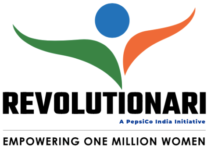Plastic pollution is quite literally an ever-growing problem. Waste bottles, bags and packaging can be seen littering most urban environments – but unlike other forms of waste, they can take anything from 50 to 1,000,000 years to decompose. In addition, millions of small pieces of plastic flotsam are swirling around in Pacific Trash Vortex, damaging marine life. Such waste is a particular problem in poverty-stricken areas, where environmental regulations tend to be lax.
A new scheme aims to encourage people living in impoverished regions to tackle the problem. Plastic collected from homes or common littering sites, such as beaches, will be exchangeable at a ‘Plastic Bank’ for goods, 3D printed products (made from the plastic the bank recycles) and micro-finance loans. A pilot is being launched in Lima, Peru (where only 2% of plastic waste gets recycled), with plans to open Plastic Banks worldwide if it is successful.
Plastic Bank is a business: it will generate profit by selling on the plastic it recycles. But the founders seem confident that it will have a positive social impact too. “Global social and environmental crises are linked, and so are the solutions”, says David Katz, CEO of Plastic Bank. “The crisis of waste plastics is an industrial problem that demands a transformative solution, like taking oceanbound plastic waste and assigning it value.”
The exchange rate for waste – which may feature subsidies to assist people in need – will be established during next year’s pilot programme. Once set-up, Plastic Bank’s computerized exchange platform will track the impact the bank is having on each member’s standard of living. Shaun Frankson, Co-founder of Plastic Bank, explains that they hope the social improvement aspect of the recycled waste– which they term ‘social plastic’ – will increase its value to the end consumer (in the same manner as fair trade products).
“The Plastic Bank idea needs to be focused on careful instruction and training as to how sorting should be done”, says Thomas Nosker, a plastics expert from Rutgers University.









